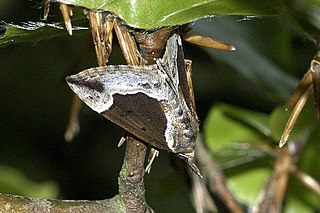
Hypena crassalis, the beautiful snout, is a moth of the family Erebidae. The species was first described by Johan Christian Fabricius in 1787. It is found in Europe.

Cataclysta lemnata, the small china-mark, is a moth species of the family Crambidae. It is found in Europe, Morocco and Iran.

Udea olivalis is a species of moth of the family Crambidae. It was first described by Michael Denis and Ignaz Schiffermüller in 1775 and is found in Europe.

Agonopterix ocellana is a species of moth of the family Depressariidae. It is found in Europe and was first described by Johan Christian Fabricius in 1775

Mesapamea secalis, the common rustic, is a moth of the family Noctuidae. The species was first described by Carl Linnaeus in his 1758 10th edition of Systema Naturae. It is found in Europe, north-west Africa, Turkey and northern Iran.

Agonopterix angelicella is a moth of the family Depressariidae. It is found in most of Europe, except the Iberian Peninsula and south-eastern Europe. It is also found on the Russian plain and Siberia and in Japan.
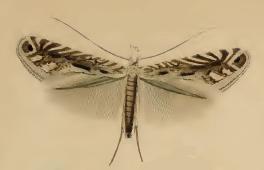
Parornix devoniella is a moth of the family Gracillariidae. It is known from all of Europe.

Agonopterix ciliella is a moth of the family Depressariidae. It is found in most of Europe, except the Iberian Peninsula, most of the Balkan Peninsula and the Benelux. It is also found in North America.

Agonopterix purpurea is a moth of the family Depressariidae. It is found in most of Europe.

Agonopterix subpropinquella is a moth of the family Depressariidae. It is found in most of Europe.

Agonopterix yeatiana is a moth of the family Depressariidae. It is found in most of Europe.
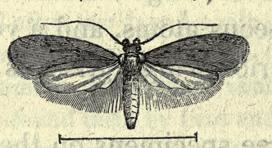
Agonopterix rotundella is a moth of the family Depressariidae and is found in most of Europe. It was first described from moths found in Surrey, England by the entomologist John Douglas in 1846.
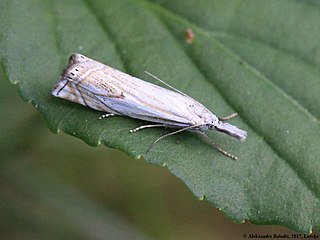
Crambus uliginosellus is a species of moth in the family Crambidae. It was first described by Zeller in 1850 and is currently found in most of Europe, except Portugal, Slovenia, Croatia and Ukraine.
Thiotricha atractodes is a moth of the family Gelechiidae. It was described by Edward Meyrick in 1922. It is found in Australia, where it has been recorded from Queensland.
Cerconota rosacea is a moth of the family Depressariidae. It is found in the Amazon region and French Guiana.
Hypercallia halobapta is a moth in the family Depressariidae. It was described by Edward Meyrick in 1930. It is found in Brazil.
Antaeotricha hydrophora is a species of moth in the family Depressariidae. It was described by Edward Meyrick in 1925. It is found in Peru.
Antaeotricha tractrix is a moth in the family Depressariidae. It was described by Edward Meyrick in 1925. It is found in Brazil.
Imma cancanopis is a moth in the family Immidae. It was described by Edward Meyrick in 1906. It is found in Colombia and French Guiana.
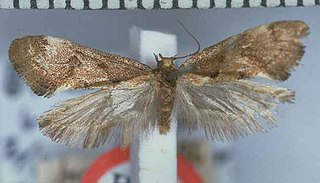
Tingena brachyacma is a species of moth in the family Oecophoridae. It is endemic to New Zealand and has been found in the south of the South Island. This species inhabits open swamps, native forest and scrubland and has been collected amongst Leptospermum. The adults of the species are on the wing in November and December.












